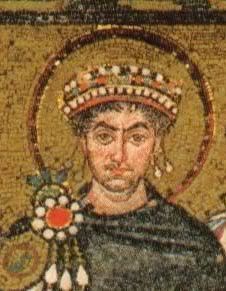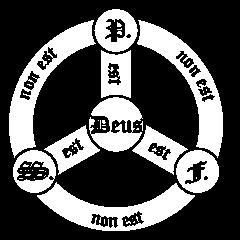Post by ceridwen on Mar 5, 2008 14:17:45 GMT -5
I'm going through a free online "course" on freedom/liberty, just out of curiosity. The author of the course believes that "because you are a human being, you have an absolute right to own and operate your own life, any way you wish." I'm having somewhat of a hard time understanding his reasoning behind this belief, so I'm hoping I can get some help here. The following is a quote from the website under the heading "Are human beings self-owners?"
------------------------------
"Many animals are not self-owners, but rather are members of a hive or herd or pack and function only in that capacity. Bees prosper only if they work in a strict hierarchy by instinct; none of them (as far as we can tell) buzzes around reasoning whether to get honey that day, and where from, and whether to contribute the haul to the hive or to gorge it all himself. Wolves have a hierarchy in a pack, again they are hard-wired to behave that way. But humans are as we've seen reasoning animals; we figure things out logically and take decisions accordingly and all of that is or can be done independently of what other humans decide; others' decisions may affect what you choose, but it's still your choice.
So let's use reason to test the idea that we each own ourselves, as proposed on the Benefits Page at Question 1 (close it, to return here) and let's see whether or not this premise is also an axiom - something undeniable.
The test, remember, is: do I have to assume the premise implicitly, in order to try to deny it explicitly? So let's try to deny this premise, by saying "No, I do not own myself."
Oops! Immediately, there are problems. First, how dare you express an opinion about who owns you, if in fact you don't own yourself? - you'd have no right even to open your mouth without permission, let alone pronounce a profound judgment! And second and even worse, if ownership (the right to decide, to direct, to control) of a human person is not vested in the person himself, then it must be vested in someone else. Who?
Some other person, maybe. But in that case how did he acquire such ownership rights? This was the nonsense underlying slavery; "owners" bought slaves at the "market", from shippers who never owned the transported Africans in the first place - they had merely kidnapped them. Certainly, the slaves' self- ownership was being horribly denied in practice, but it was there anyway by right. So no, you cannot be owned by another person.
What, not even if you donate yourself to him? - No! Why not? - because at the instant of such an attempt to donate oneself, to transfer ownership to another, the property item being transferred would be a self-owning person, which is impossible! If one is a self-owner the moment before such a transfer, one is still a self-owning person the instant afterwards, and therefore the alleged transfer would be a total fraud. This is a subtle point, but think: it has to be so!
So if not "somebody else" can it be said that every human is owned by some group of persons such as a company or a government - as in "I owe my soul to the Company store"? Again we must ask, how exactly was such ownership acquired; and there is simply no answer to that because, as above, it is impossible for even a willing would-be slave to surrender his own ownership of his own person.
Lastly, might it be that God owns us? - and again (until we address that issue in the Segment on "Religion") let's leave aside the question of whether God exists. Again the answer must be No, for again there is the insoluble problem of transfer, as above; and even if that were somehow solved, for God to acquire ownership rights we'd have to have had them in the first place in order for our donation of ourselves to be valid. Also, there's an extra problem: if it's argued that God owns everyone anyway by right of creation, then all humans are His slaves and the other human attributes of free will and moral choices and expressions of love are all cruel illusions; we would be mere puppets, no more. And that simply does not fit what we observe with our senses. "
-----------------------------------
I'm trying to find a hole in his theory, but I'm not good at philosophy or debate. Any ideas?
------------------------------
"Many animals are not self-owners, but rather are members of a hive or herd or pack and function only in that capacity. Bees prosper only if they work in a strict hierarchy by instinct; none of them (as far as we can tell) buzzes around reasoning whether to get honey that day, and where from, and whether to contribute the haul to the hive or to gorge it all himself. Wolves have a hierarchy in a pack, again they are hard-wired to behave that way. But humans are as we've seen reasoning animals; we figure things out logically and take decisions accordingly and all of that is or can be done independently of what other humans decide; others' decisions may affect what you choose, but it's still your choice.
So let's use reason to test the idea that we each own ourselves, as proposed on the Benefits Page at Question 1 (close it, to return here) and let's see whether or not this premise is also an axiom - something undeniable.
The test, remember, is: do I have to assume the premise implicitly, in order to try to deny it explicitly? So let's try to deny this premise, by saying "No, I do not own myself."
Oops! Immediately, there are problems. First, how dare you express an opinion about who owns you, if in fact you don't own yourself? - you'd have no right even to open your mouth without permission, let alone pronounce a profound judgment! And second and even worse, if ownership (the right to decide, to direct, to control) of a human person is not vested in the person himself, then it must be vested in someone else. Who?
Some other person, maybe. But in that case how did he acquire such ownership rights? This was the nonsense underlying slavery; "owners" bought slaves at the "market", from shippers who never owned the transported Africans in the first place - they had merely kidnapped them. Certainly, the slaves' self- ownership was being horribly denied in practice, but it was there anyway by right. So no, you cannot be owned by another person.
What, not even if you donate yourself to him? - No! Why not? - because at the instant of such an attempt to donate oneself, to transfer ownership to another, the property item being transferred would be a self-owning person, which is impossible! If one is a self-owner the moment before such a transfer, one is still a self-owning person the instant afterwards, and therefore the alleged transfer would be a total fraud. This is a subtle point, but think: it has to be so!
So if not "somebody else" can it be said that every human is owned by some group of persons such as a company or a government - as in "I owe my soul to the Company store"? Again we must ask, how exactly was such ownership acquired; and there is simply no answer to that because, as above, it is impossible for even a willing would-be slave to surrender his own ownership of his own person.
Lastly, might it be that God owns us? - and again (until we address that issue in the Segment on "Religion") let's leave aside the question of whether God exists. Again the answer must be No, for again there is the insoluble problem of transfer, as above; and even if that were somehow solved, for God to acquire ownership rights we'd have to have had them in the first place in order for our donation of ourselves to be valid. Also, there's an extra problem: if it's argued that God owns everyone anyway by right of creation, then all humans are His slaves and the other human attributes of free will and moral choices and expressions of love are all cruel illusions; we would be mere puppets, no more. And that simply does not fit what we observe with our senses. "
-----------------------------------
I'm trying to find a hole in his theory, but I'm not good at philosophy or debate. Any ideas?










